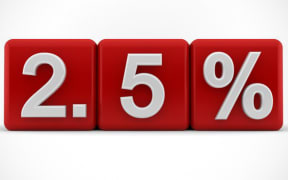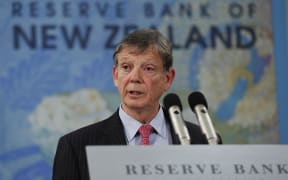Reserve Bank Governor Graeme Wheeler has delivered the widely-expected quarter percentage point rate cut to return the official cash rate (OCR) to its historic low of 2.5 percent.
But he has also signalled that this may be as low as rates go, unless there was some significant local or global economic shock.

Graeme Wheeler. Photo: RBNZ
"Monetary policy needs to be accommodative to help ensure that future average inflation settles near the middle of the target range," Mr Wheeler said in a statement.
"We expect to achieve this at current interest rate settings, although the bank will reduce rates if circumstances warrant."
In October, the governor had been saying that further rate reductions seemed "likely".
He had been almost duty bound to cut rates because of persistently low inflation, a weak dairy sector, uncertainty in overseas economies such as China, and a New Zealand dollar that had perked up in the past couple of months to an extent that Mr Wheeler said was "unhelpful."
The currency has gained the best part of a cent against the United States dollar since the governor's statement and has settled at around 67.30 US cents.
Economists were overwhelmingly expecting a rate cut, although financial markets were only giving it a 50-50 chance, which accounted for much of the strength in the currency's rebound.
But the RBNZ's 90-day bank bill forecasts - which are taken as a proxy for the official cash rate - are flat and imply no further reduction.
ANZ Bank chief economist Cameron Bagrie was a lone voice saying no rate cut was needed today, but he was not quibbling with the decision, saying the bank's outlook was far more balanced than before.
"It now appears clear that the hurdle for additional easing is reasonably high."
The central bank said there were several risks hanging over its outlook, including the prospect of global dairy prices remaining lower for longer, the prospect of an El Nino-related drought, and immigration gains staying higher for longer.
Its forecasts for inflation are still soft, with the consumer price index only limping back into the 1 to 3 percent target band by the end of next year, while economic growth is expected to quicken.
And the RBNZ was also sounding a little less worried about the hot Auckland housing market, which it said was still a risk to the financial system, but was also showing signs of slowing down under the influence of recent moves to tighten tax and lending rules.
"For now we are projecting an extended period of stability in the OCR," Cameron Bagrie said.






